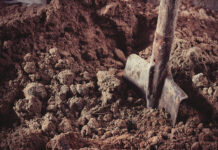
[miningmx.com] — THE Constitutional Court on Thursday opened the door to a litany of legal claims, or possible class action, against the mining industry which could amount to hundreds of millions, after it ruled workers were allowed to sue for health damages under common law.
This came after the court delivered judgment on whether the Compensation for Occupational Injuries and Diseases Act (Coida; section 35(1)) prohibits the common law right of mineworkers to recover damages against mining firms, even though mineworkers were covered by the Occupational Diseases in Mines and Works Act (Odimwa) and therefore not entitled to claim under Coida.
In the case of underground mineworker Thembekile Mankayi against AngloGold Ashanti, Mankayi claimed he contracted tuberculosis and chronic obstructive airways while in the employ of AngloGold between 1979 and 1995, which rendered him unable to work as a mineworker or in any other occupation.
As a result, he claimed damages totalling R2.6m, comprising loss of earnings of R738,147, medical expenses of R1,374,600 and general damages of R500,000.
“The basis of his claim is that AngloGold owed him a legal duty arising under both common law and statute to provide a safe and healthy environment in which to work,’ read the judgment delivered by Justice J Khampepe. “In breach of this duty, AngloGold failed to apply appropriate and effective control measures.’
After Mankayi was certified in 2004 as suffering from a compensatable disease in terms of Odimwa, he received an amount of R16,320 from the Compensation Commissioner.
When Mankayi sued for damages in the High Court under common law, AngloGold argued that he was prohibited from suing an employer for common law damages in terms Coida.
The High Court held AngloGold’s argument, which was confirmed by the Supreme Court of Appeal.
“The thrust of Mr Mankayi’s case is that in terms of.Odimwa he is entitled to and did receive compensation.but is not precluded from suing the mine at common law,’ read the judgment.
Khampepe said although there were provisions in Odimwa and Coida which interlocked, the statutes remained distinct.
“The golden thread that runs throughout Odimwa and its antecedent legislation is that they address and limit the impact and spread of infectious diseases contracted in mines,’ said Khampepe. “It is not anomalous or surprising that mineworkers are treated separately. Nor is the conclusion that the legislation deals distinctly with their claims to compensation.
“Our.history of mining, with the massive contribution of this sector to the country’s wealth and the corresponding massive toll on mineworkers’ health, justifies the distinct treatment. This history also explains why (section 35(1) of Coida) does not apply to mineworkers with compensatable diseases under Odimwa.’
The court decided that the Supreme Court of Appeal’s order be set aside and replaced with an order dismissing AngloGold’s interpretation of section 35(1) of Coida.
AngloGold was also ordered to pay all costs.
Mankanyi’s legal representative Richard Spoor confirmed in court that Mankanyi died on Friday as a result of his medical condition.
“There are tens of thousands of sick workers out there,’ said Spoor. “This is a huge victory for them.’
RETURNING TO COURT
Commenting on the ruling, AngloGold said its was still studying the details of the judgment.
“Our initial impression is that should the executor of Mr Mankayi’s estate wish to pursue his claim, he or she will now need to return to the High Court to continue with the litigation action,” read a company statement.
“AngloGold Ashanti will defend the case on its merits.
“Should other individuals lodge similar claims, these too would ultimately be defended by the company and judged on their merits.”










